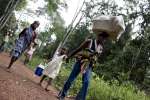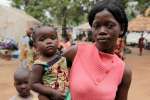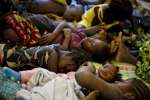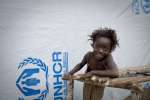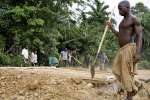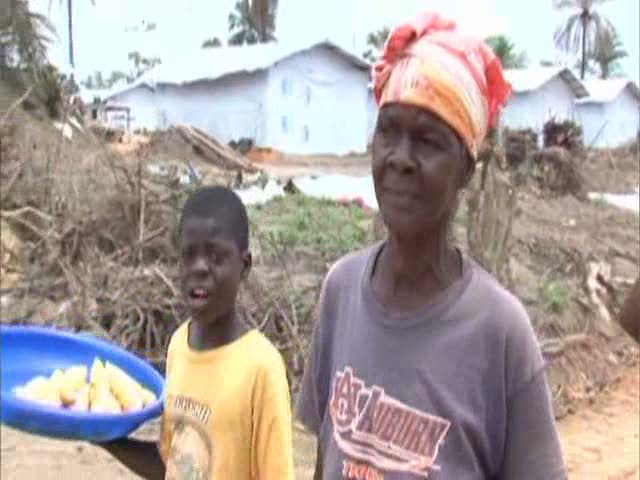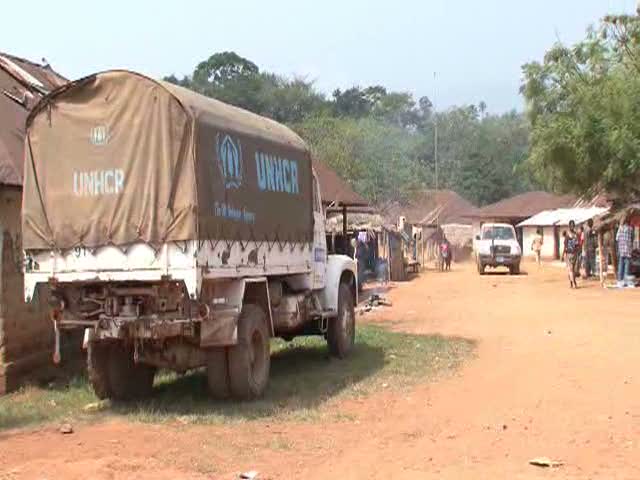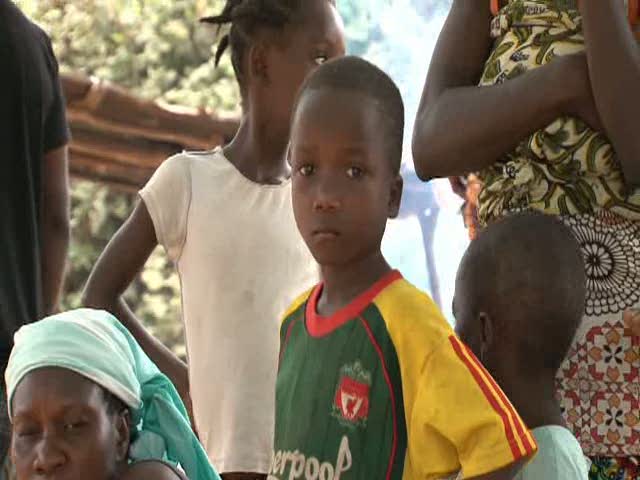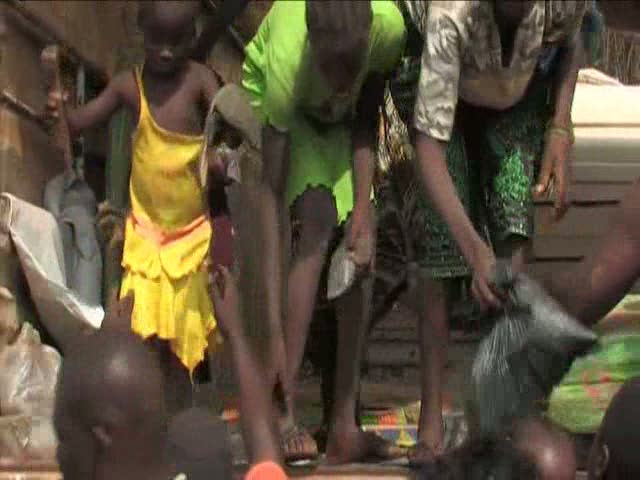Home > Where We Work > Africa > West Africa > CIV > Côte d'Ivoire on the Edge
Côte d'Ivoire on the Edge
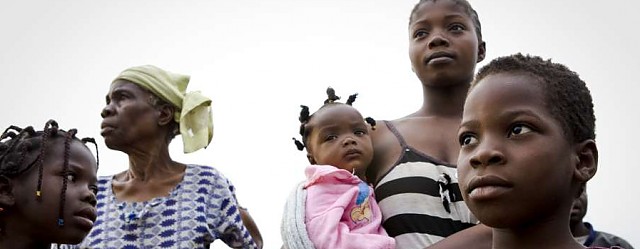
A New Displacement Crisis in West Africa
The presidential election in Côte d'Ivoire in November 2010 was meant to reunite the country; instead it brought renewed fighting to the West African nation. The main rivals, incumbent Laurent Gbagbo and opposition leader Alassane Ouattara, both claimed victory at the ballot box, leading to rising political tension and violence. This culminated in the arrest of Gbagbo on April 11, 2011, following heavy fighting in the commercial capital of Abidjan.
In the weeks after the election, amid threats and sporadic violence, tens of thousands of people fled to Liberia and later to other neighbouring countries. UNHCR teams in Liberia began to reach out to these refugees in remote and difficult to access areas along the border. The refugee agency also carved a new camp out of the jungle at Bahn in Nimba County.
Fighting between supporters of the presidential rivals since late February, in the countryside and in Abidjan, accelerated the forced displacement. By late March, there were anlmost 1 million people displaced within the country, including 700,000 in Abidjan and 150,000 in the west of the country, where massacres were reported.
The number of refugees in Liberia stood at about 150,000 by the time the hostilities ended, while other countries in the region have also accepted people fleeing Côte d'Ivoire. To cope with a spike in the number of new arrivals in Liberia since February 24, UNHCR set up a rapid emergency registration system.
But the tragedy of the Ivorian people was coming at a time when world attention was focused on Libya and the aftermath of the March 11 earthquake and tsunami in northern Japan. UNHCR High Commissioner for Refugees António Guterres, in a bid to highlight the crisis in Côte d'Ivoire and to stress the need for international help, travelled to Liberia in late March and met Ivorian refugees.
Although major conflct has ended, sporadic violence continues and the needs of the displaced remain considerable and the UN refugee agency needs donor help for its growing emergency response. The displaced, both inside and outside the country, will not be able to return home immediately because of safety concerns. Funding is still needed for our operations in Liberia and Côte d'Ivoire.
 UNHCR Côte d'Ivoire Situation Updates
UNHCR Côte d'Ivoire Situation Updates
- UNHCR Côte d'Ivoire Situation Update, 26 December 2011
- UNHCR Côte d'Ivoire Situation Update, 29 November 2011
- UNHCR Côte d'Ivoire Situation Update, 15 November 2011
- UNHCR Côte d'Ivoire Situation Update, 24 October 2011
- UNHCR Côte d'Ivoire Situation Update, 10 October 2011
 Côte d'Ivoire Crisis Appeals
Côte d'Ivoire Crisis Appeals
- Côte d'Ivoire Emergency Humanitarian Action Plan 2011 - Revision - 8 April 2011
- Liberia Emergency Humanitarian Action Plan 2011 - Revision 24 March 2011
- Côte d'Ivoire Situation Response 2011: Preparedness and Response - Supplementary Requirements for West Africa
- Côte d'Ivoire Emergency Humanitarian Action Plan 2011, January 2011
 Country Fact Sheets
Country Fact Sheets
Situation updates from countries neighbouring Côte d'Ivoire.
- Ukraine Operational Update
- Ghana Fact Sheet
- Ukraine Fact Sheet
- Ukraine Participatory Assessments Summary Report
- Gambia Fact Sheet





